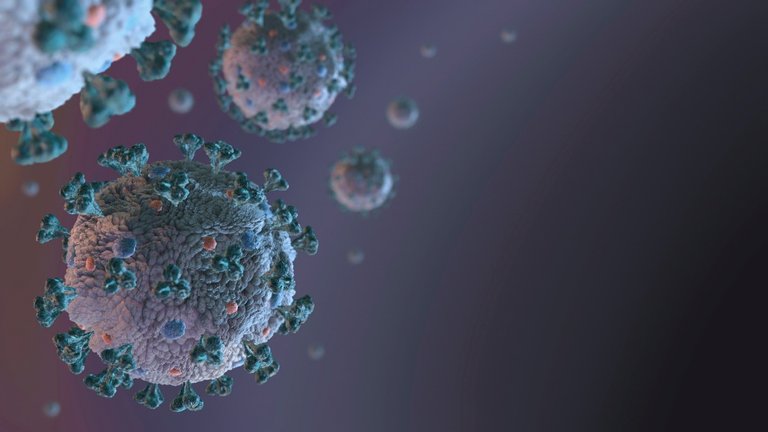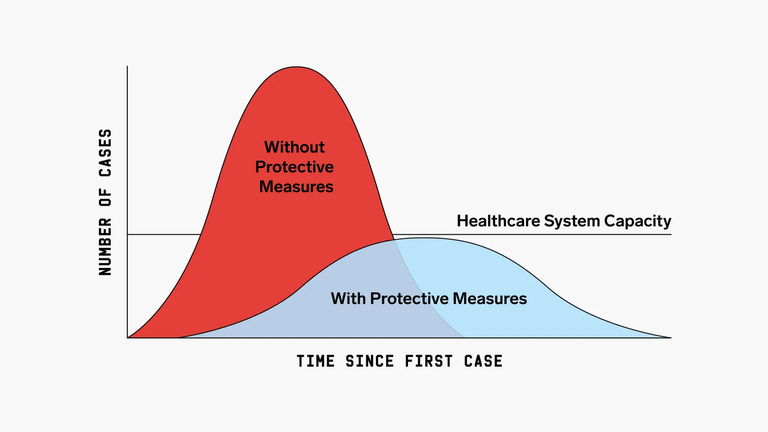
WHO declared the COVID-19 outbreak a pandemic in March, at the moment of writing this article, COVID-19 has infected over 2.2 million people and has reached ever continent (except Antarctica) in the world. The outbreak is showing no signs of slowing down and has already taken 154,000 lives worldwide.
Table of content
- Where did it start?
- Symptoms & and the dangers of the virus
- How does it spread?
- Where is it spreading?
- Should I visit a doctor?
- Can we treat this disease?
- Should I be scared?
- How do I protect myself & my loved ones?
- How can I help “flatten the curve”?
- Should/Can I travel?
Where did it start?
The virus seems to have originated in Wuhan, China, which is about 650 miles south of Beijing. The Huanan Seafood Wholesale Market which is a meat market in the city of Wuhan and sells all types of meat including fish, bats, snakes and pangolins was implicated in the spread in early January. Chinese state media has contested this claim, but many researchers believe this was the ground for transmission of the virus for patient zero, and this market also has been implicated in the origin and spread of multiple other viral diseases including SARS and MERS.
Also, the virus is novel as it has never been seen before to infect humans. Coronaviruses are common in animals of all kinds but have never jumped to humans, researchers believe it obtained this ability at the beginning of December. How it mutated to gain this ability is still unknown.
Symptoms & and the dangers of the virus
As the coronavirus affects the respiratory tract, the common symptoms that present is:
- Dry cough
- Fever
- Shortness of breath/Difficulty in breathing
- Runny nose
- Tiredness
- Sore throat
- And body aches
There are multiple reports suggesting people experience loss of taste and smell as well.
In acute cases, the virus is known to cause pneumonia, severe acute respiratory syndrome, kidney failure and even death.
How does it spread?
Researchers are working hard to determine the exact method of transmission of the COVID-19, but it is believed like the like other coronaviruses it spreads by close contact. Researchers believe that droplets of mucus and saliva produced when an infected person coughs or sneezes, maybe the carrier for the transmission of the virus. The droplets can make their way to your eyes, mouth or nose directly or indirectly when an infected person touches a surface like doorknobs, handles, table, etc. and an uninfected person touches their face after touching these surfaces. Research shows the virus can last a few days on these surfaces.
Where is it spreading?
The initial epicenter for the virus was China, but the virus has spread all over the globe in the past couple of months.
China took aggressive action to contain the outbreak and they seem to have been able to reduce the number of new infections quite drastically. WHO agrees that their containment measure seems to be working quite well.
The current epicenter is in Europe and the US. While European countries currently have the highest death toll (with Italy at over 18,000 deaths), the US has the highest number of reported cases at over 457,000. At the moment the US outbreak is spreading faster than ever predicted, and is expected to have over 1 million cases within the next couple of weeks.
You can find more about the current hotspots around the world and the number of cases here.
Should I visit a doctor?
If you have symptoms like a low-grade fever, cough, runny nose and sore throat then try to just stay inside your house for the next 7 days, and if you have other living with you then they should stay in for 14 days. If these symptoms do not progress in the next 7 days, then you most probably just have a mild case of the virus or maybe even just have a simple cold, either ways these symptoms will subside by themselves in a couple of days and there is nothing to worry about.
However, if these symptoms progress to shortness of breath, chest pain, blue lips, extreme fatigue, or any other type of respiratory distress, then seek care immediately. It is advised that you call ahead of visiting any hospital, to ensure they are fully equipped to take on COVID-19 cases.
Can we treat this disease?
Unfortunately, at this moment there is no known treatment for COVID-19 that has been proven to work. As COVID-19 is a virus, antibiotics do not work on them, and we haven’t come up with an antiviral that can treat COVID-19 yet. Drugs used to treat HIV have shown promise to work against the virus, but it may be a while before a perfect antiviral is created. Also, there are no know vaccines for COVID-19, however, researchers are close to creating one.
Hydroxychloroquine a drug used to treat malaria is believed to help (that is what the Trump administration says), but there is no proof to the claim and many researchers say this may be a false claim.
Currently, all COVID-19 cases are treated in the hospital/crisis centres by preventing any chance of the patient developing an infection and providing supportive care, with 100% oxygen and mechanical ventilators.
Should I be scared?
COVID-19 outbreak is a pandemic and the WHO did not take the word pandemic lightly when the declared this outbreak a pandemic. However, they did also state there is no reason to fear the risk of getting infected if one was to fall all preventative measure. Also, it was made clear that most patients (current statistic show about 90-95%) of the COVID-19 infection would only face minor symptoms similar to that of the common cold.
But at the same time, this virus is known to be quite harsh on young kids and older demographic. Also, anyone suffering from respiratory, cardiac or kidney disease or disorders prior to the infection is more prone to show harsher symptoms of the virus and even death.
This is why the WHO urges you to stay indoors and maintain your distance from others as much as possible. And asks you to wash your hands and face after returning from outdoors.
How do I protect myself & my loved ones?
The only way at the moment is to stay indoors and practising social distancing. If you are sick try avoiding outdoors altogether, but even you don’t feel sick or show symptoms there is a chance that you are contagious, so trying staying at your homes as much as possible.
However, if you do go out, then once your return back, wash your hands with sanitiser. Disinfect any surfaces that could be contaminated. Cover your mouth while coughing and sneezing. Wear a mask, preferably an N95 mask, while you are outdoors. Maintain at least 2-3ft or 1m distance from anyone else.
How can I help “flatten the curve”?
The idea behind the phrase “flatten the curve” is that we as individuals can contribute to the communities and countries by taking preventative measure to avoid getting infected by COVID-19 and thereby reduce the stress on the healthcare system.

Image credit: SAM WHITNEY, CDC
The image shows how simple protective measure like social distancing can reduce the chance of overwhelming the health care systems like hospitals and crisis centres, and thereby allowing critically ill patients to be cared for better. You can also donate to local hospitals/crisis centres to help them increase their capacity, to provide care for more people in need.
Should/Can I travel?
Avoid any unnecessary travel at all cost, especially if you are an older adult try to avoid any type of travel altogether as you would have a higher chance of getting infected and getting more severe symptoms.
Avoid travelling to countries like the US, Iran, Italy, Spain and other European countries as they are currently heavily affected.
If you liked this article don’t forget to upvote and share it. If you want another article on COVID-19 or have some suggestion for the next post then drop it in the comment section below.
Take care and stay healthy
@tipu upvote
Seems that you have no deposit. Plase send any amount of HBD or HIVE to @tipU to use @tipU services :)